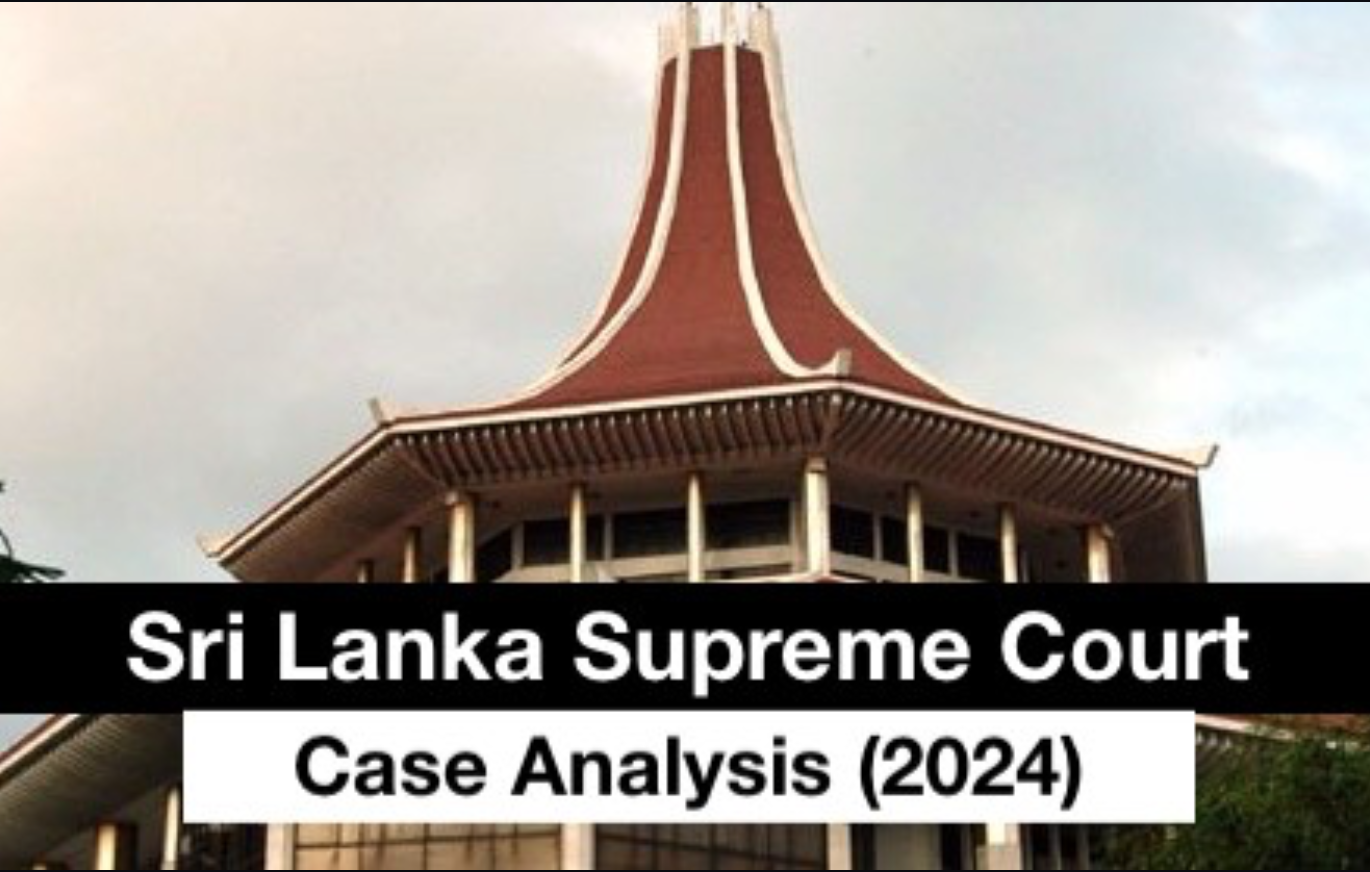1. Case Background
Plaintiff-Appellant: Domingo Hewage Gunapala
Substituted Plaintiff-Appellant-Respondent: Domingo Hewage Premachandra
2nd Defendant-Respondent-Petitioner: Upali Gunasekera (substituted by Palm Paradise Cabanas (Pvt) Limited)
Court: Supreme Court of the Democratic Socialist Republic of Sri Lanka
Case Origin: District Court of Tangalle (Case No. 2218/P)
Core Issue: The appeal was brought before the Supreme Court challenging a judgment of the Court of Appeal dated December 4, 2018. The issue arose due to a procedural defect in the Petition of Appeal, which was filed in the name of a deceased individual.
2. Procedural History
- District Court Proceedings:
- The initial case was filed in the District Court of Tangalle, where judgment was delivered on October 27, 1998.
- An appeal was filed on December 21, 1998, leading to proceedings in the Court of Appeal.
- Court of Appeal Proceedings:
- The Court was informed on July 7, 2006, that the 2nd Defendant-Respondent, Upali Gunasekera, had passed away.
- Palm Paradise Cabanas (Pvt) Limited was substituted as the 2nd Defendant-Respondent.
- A cross-appeal was filed by the substituted party on July 31, 2008.
- The Court of Appeal delivered its judgment on December 4, 2018.
- Supreme Court Proceedings:
- The Petition of Appeal was filed on January 14, 2019, in the name of the deceased Upali Gunasekera.
- Preliminary objections were raised regarding the validity of the Petition.
3. Key Legal Issues
- Validity of Petition Filed in the Name of a Deceased Person:
- Whether a Petition of Appeal filed in the name of a deceased individual is valid.
- Curability of Procedural Defects:
- Whether the defect of filing the Petition in the name of a deceased individual is curable.
- Good Faith and Procedural Compliance:
- Whether subsequent actions to amend the caption without court approval demonstrated bad faith.
4. Arguments Presented
Preliminary Objection by Respondents:
- The Petition was filed in the name of a deceased individual, rendering it invalid.
- Changes to the caption in subsequent documents were made without court approval, demonstrating bad faith.
Petitioner’s Defense:
- The error in naming the deceased individual was a typographical mistake and non-fatal.
- Cited precedents to argue that such defects are curable.
5. Court’s Analysis
- Filing in the Name of a Deceased Person:
- The Court found that the Petition of Appeal, filed years after the death of the 2nd Defendant-Respondent, was inherently flawed.
- The substitution of Palm Paradise Cabanas (Pvt) Limited was acknowledged in prior proceedings, making the error inexcusable.
- Applicability of Precedents:
- The cited cases involved misnomers or errors in naming living parties, which were distinguishable from the current case where the named party was deceased.
- Bad Faith in Caption Amendments:
- The Court noted that subsequent documents covertly corrected the caption without seeking permission, an act deemed to reflect bad faith.
6. Judgment
- Outcome: The Supreme Court upheld the preliminary objection and dismissed the Petition in limine.
- Reasoning: Filing in the name of a deceased individual is a fundamental procedural defect that cannot be cured through subsequent actions.
Judges:
- Justice S. Thurairaja, PC
- Justice Kumudini Wickremasinghe
- Justice K. Priyantha Fernando
7. Implications
- For the Legal System:
- Reiterates the importance of procedural compliance in appellate filings.
- Distinguishes between curable procedural defects and fundamental errors.
- For Litigants:
- Highlights the need for accuracy in filing appeals, especially concerning party identities.
- Underscores the risks of acting without court approval in procedural corrections.
- For Future Cases:
- Clarifies the limits of judicial tolerance for procedural errors.
- Establishes that filing appeals in the name of deceased individuals invalidates the proceedings.
8. Conclusion
The dismissal of the Petition underscores the Supreme Court’s commitment to procedural integrity and its rejection of actions taken in bad faith. While minor procedural defects may be curable, fundamental errors such as filing in the name of a deceased individual are not. This case serves as a critical reminder of the need for diligence and transparency in legal proceedings.














